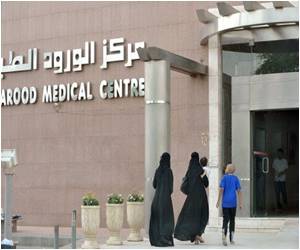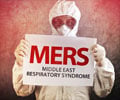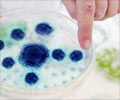New treatment strategy has been developed against MERS. The new drugs modulate a cellular recycling process called autophagy that causes the destruction of the virus, thereby reducing infection.
- A new treatment strategy against MERS has been developed
- It uses drugs that regulate a cellular recycling process called autophagy
- This leads to the destruction of the MERS Coronavirus, resulting in a reduction of infection
The study, published in Nature Communications, was jointly led by PD Dr. Marcel Müller of the Institute of Virology at Charité – Universitätsmedizin Berlin, Dr. Nils Gassen of the University Hospital Bonn (UKB), and Dr. Theo Rein of the Max Planck Institute of Psychiatry, Munich, Germany.
Read More..
MERS & its Complications
MERS, also known as ‘Camel Flu', is a severe viral infection affecting the respiratory system, often resulting in fatal pneumonia. It is so-called because it was first discovered in the Middle East – Saudi Arabia to be more precise – in the year 2012. Since 2012, approximately 2,500 cases of MERS have been reported to WHO from 27 countries across the globe.The disease is caused by MERS-CoV. The virus is zoonotic in nature, meaning that animals, especially dromedary (having one hump) camels, are its natural hosts, but can be transmitted to humans. Typical symptoms include fever, cough, diarrhea, and shortness of breath. However, MERS can cause severe complications, such as pneumonia, which can result in death in 35 percent of MERS-CoV infected patients.
Autophagy & its Dysregulation by the MERS Coronavirus
Autophagy is a recycling process of the cell that disposes of dead cellular debris, degraded materials, and waste products, while keeping useful cellular components intact so that they can be reused for other purposes by the cell. This ‘auto-digestion’ process is also capable of identifying and destroying components of pathogens, such as viral proteins, as these are recognized as waste products.Several viruses are capable of dysregulating and inhibiting this autophagic degradation process. The research team investigated whether MERS-CoV also exhibited this property. They infected monkey kidney cells with MERS-CoV in cell culture and found that the autophagic process was dysregulated in the virus-infected cells. This provided clinching evidence that MERS-CoV was also capable of inhibiting autophagy.
“This result clearly indicated that the MERS pathogen benefits from an attenuation of the cellular recycling process,” explains Müller.
Identification of SKP2 Protein – A Molecular Switch that Regulates Autophagy
The researchers also identified a protein known as SKP2 (S-phase kinase-associated protein 2), which is exclusively found in humans. Importantly, SKP2 acts as a molecular switch that regulates autophagy. The research team discovered that MERS-CoV was capable of slowing-down the cellular recycling machinery by activating the SKP2 molecular switch, thereby escaping degradation by autophagy.Next, the research team used SKP2 inhibitors to stimulate autophagy, which led to the degradation of MERS-CoV. Astonishingly, this resulted in a reduction of viral replication by a factor of 28,000! These SKP2 inhibitors included licensed drugs, such as niclosamide, which is conventionally used for treating tapeworm infestations. Thus, this repurposed drug was found to be highly effective in significantly reducing the replication of MERS-CoV, thereby substantially reducing the viral load and hence the severity of the infection.
Future Plans
The research team is planning to evaluate whether SKP2 inhibitors could also inhibit other Coronaviruses such as SARS (Severe Acute Respiratory Syndrome) Coronavirus or the 2019 Novel Coronavirus (2019-nCoV), which is currently wreaking havoc in China.Concluding Remarks
Müller concludes: “Our results reveal SKP2 to be a promising starting point for the development of new substances capable of fighting the MERS virus, and potentially even other autophagy-dependent viruses.”Since SKP2 inhibitors don’t directly target the virus, Müller is optimistic that there will be a lesser chance of developing resistance. However, he cautions: “SKP2 inhibitors will need to be tested in vivo before they can be used as drugs. Furthermore, one has to properly evaluate the risks and benefits for their in vivo use, since even drugs that have already been approved can have side effects.”
References:
- SKP2 Attenuates Autophagy through Beclin1-Ubiquitination and its Inhibition Reduces MERS-Coronavirus Infection - (https://www.nature.com/articles/s41467-019-13659-4)
- A New Treatment Strategy Against MERS - (https://www.dzif.de/en/new-treatment-strategy-against-mers)
Source-Medindia










